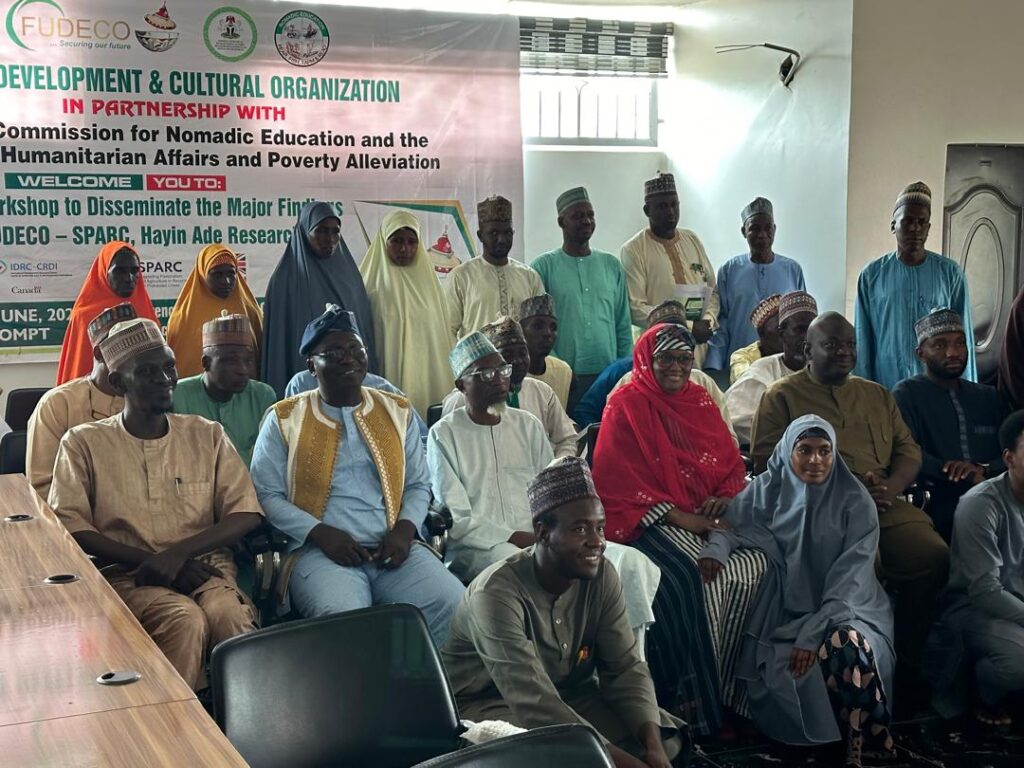From Abdullahi Alhassan, Kaduna
The Fulbe Development and Cultural Organization (FUDECO), in collaboration with the National Commission for Nomadic Education and the Ministry of Humanitarian Affairs and Poverty Alleviation, held a one-day workshop in Kaduna.
The event was organized to present findings from a joint research project conducted by FUDECO and SPARC in the Hayin Ade community of Kubau Local Government Area, Kaduna State.
Dr. Nafisat Dahiru, Chairperson of FUDECO, in her opening remarks, welcomed participants from government agencies, academia, civil society, and the media. She stated that the workshop aimed to share data on the causes and impacts of the conflict between farmers and herders in the area.
“This research was carried out to understand the losses experienced by Fulani cattle rearers due to cattle rustling, migration, and insecurity,” Dr. Dahiru said. “Many herders have lost livestock, homes, and livelihoods.”
She noted that the research sought to contribute to dialogue and understanding around the farmers-herders conflict.
FUDECO has previously worked with Fulani communities on issues relating to peaceful coexistence and inclusion. According to Dr. Dahiru, the study conducted in Hayin Ade was intended to inform stakeholders, including policymakers and researchers.
She also mentioned that there are plans to extend the research to other areas where similar challenges are being reported.
Mr. Ako Alexander, Deputy Director of Civil Litigation at the Kaduna State Ministry of Justice, also addressed the gathering. He said the workshop provided a platform to discuss practical solutions to recurring conflicts and improve mutual understanding.
The findings presented highlighted key challenges in Hayin Ade. More than 95% of the population are agro-pastoralists, while fewer than 5% are solely crop farmers. Many reported losing livestock due to conflict and insecurity.
Some participants shared personal accounts of cattle losses linked to rustling and restricted grazing access.
Historically, Hayin Ade served as a dry-season grazing area. However, over the past four decades, the area has become a settled community. Traditional grazing lands and stock routes have been increasingly converted to farmlands, contributing to land-use tensions.
The report recommends improved land management, protection of grazing routes, and inclusive policy dialogue involving all affected groups.

